
The "Listen to Musicians" section is a section where professionals who usually play music on the stage go down the stage and speak in words.This time, we will interview the guest, Hiroaki Mizuma, who is active as the chief bassoonist of the prestigious Oke Cologne Radio Orchestra in Germany. I would like to hear from you on the theme of "studying abroad in music."
(Interview: March 2006)
-Profile of Hiroaki Mizuma-

Hiroaki Mizuma
Principal bassoonist of the Cologne Radio Orchestra.Graduated from Kyoto City University of Arts.Entered the University of Music in Detmold as a scholarship student of the German Academic Exchange Society.Enrolled in the Berlin Philharmoniker Karajan Academy.Graduated from Maastricht University of Music, Graduate School of Conducting.Received the Special Award at the Spring International Music Competition in Prague.Winner of the Japan Tube Musical Instrument Competition.After working as the principal bassoonist of the Bremerhafen Municipal Opera Orchestra, he became the principal bassoonist of the prestigious Oke Cologne Broadcasting Orchestra.In recent years, he has been focusing on conducting, composing, and teaching younger generations.
— Can you give us a brief background?
Mizuma When I was in the 4th year of university in Japan, I decided to go to Germany using the scholarship system.I came to Detmold, but it didn't quite fit with sensei there (laughs).I gave up in another month (laughs).I think this story will be helpful for those who are studying abroad, but I can't talk about it at all unless sensei is the person who does the music I was thinking of.Detmold has few opportunities to listen to concerts and orchestras in the countryside.
— Is that so (laughs)?
Mizuma Detmold is really a countryside town with a population of about 5, so even though I came to Germany, I didn't have a chance to listen to professional music at all.
— I had the impression that every town in Germany has a good orchestra and you can listen to good music in any city, but that's not the case.
There is an orchestra in the water, though.But I didn't do such a high level thing, so I thought that it wouldn't go bad if I was here, so I took action a month after I came to Germany.First of all, I went to listen to the Berlin Philharmoniker.Would you like to meet the bassoon chief after the concert and take a lesson?After the concert, I hit him for the first time.
— No appointment?
I didn't even know the Mizuma phone number (laughs).So I hit it and was told that I would come tomorrow morning, so I went to the lesson.
— Did you accept it without any problems?
Mizuma No problem.It was a very good sensei.So when I took the lesson, after playing for about 5 minutes, I was asked, "Are you sure you want to study in Berlin?" This was the point I thought (laughs). I was told by sensei that I would take it from summer, and I got a scholarship, so I was exhausted.I entered the Karajan Academy, but at that time there were 26 students in all schools.All of them are professionals because they are also selected members.I also did a lot of ensembles there.Almost every month, I also sent it to the Berlin Philharmoniker as a tiger.So I studied hard for two years.
— The University of Music in Detmold has nothing to do with it (laughs).
Mizuma It doesn't really matter anymore (laughs).I didn't have much information at that time, so I got a scholarship, so I decided to go to Germany and study there, but it was too different from what I expected, and if that was the case. I didn't think it made sense to be in this town.From there, I took action and was really correct.
— Do I need to be recognized by sensei to enter the Karajan Academy?
It is the first thing to be recognized by Mizuma sensei.At that time, I wasn't recruiting as much as I do now. At that time, sensei first admitted, and this time I gathered all the woodwind instruments of the Berlin Philharmoniker and took the enrollment test.If you passed it, you entered the Karajan Academy.
— How many people are there?
Mizuma: There were 26 people in all, so maybe there were 5 or 6 stringed instruments or a little more.There are two or three bassoons.After all it is important to hit any human being.
— Your momentum is important, isn't it?
Mizuma That's right.Especially when I was young.
— Did you go to Germany just to become a professional?
Mizuma: I didn't feel like coming back to Japan, from the beginning. As long as I went to Germany, I always felt like I would succeed in Germany.
- It is cool.I feel like a Japanese samurai (laughs).Even in the photo, it looks like a samurai, or a strict heart is exposed.
Mizuma: Actually, I love martial arts.I used to play judo when I was in elementary school, and I've been doing karate since high school, and now I've been doing kendo all the time.
— Then it's really a samurai (laughs).
Mizuma It is said to be a musician who fights (laughs).
— I really respect you.That kind of person (laughs).
Mizuma No, it's ridiculous.If I don't practice martial arts, I feel slack.If you pursue it, music and martial arts are the same.Both are really fun.
— What made you interested in music?
Mizuma It's a coincidence, but there was a harmonica sensei next to the three cases in my parents' house.That's why I used to play harmonica from about 3 to 6 years old.
— Is it a harmonica?
Mizuma harmonica is the very first instrument. Then maybe I'm in the 4th grade of elementary school.I joined a chorus called the Kyoto City Boys Chorus.Right now, you have Sado, who is famous for conducting.He was with me.He's been with me since then, and he still calls me a lot.He is with the chorus and with the university **. (Editor's note *: Conductor Yutaka Sado, Note **: Kyoto City University of Arts)
- Really.
Mizuma At a university in Kyoto, he played the flute.Kyoto had a conducting department, but no one had any students.He has no conducting department anywhere.Returning to the story, I was in a chorus from elementary school to the third year of junior high school. When I entered junior high school from elementary school, there was no brass band club.So I started the brass band by myself.
— If you don't have one, you can make it (laughs).
Mizuma: Only the musical instruments were sleeping in the warehouse. That's why I wanted to gather people because there are musical instruments, so I gathered dozens of people and started a small ensemble.At that time, I was playing the trumpet. The brass band collapsed as soon as I graduated (laughs).After that, I've been playing the clarinet at Rakunan High School for the first year, even though I'm at the national competition now.
— The instrument has changed quite a bit.
Mizuma It changes around the time (laughs).So, if I could play the clarinet, I would play the saxophone without permission, and when I played jazz, I played the saxophone.So, for example, if you say that you don't have enough trombone when you march, you're told to play the trombone, so you can play a lot (laughs).
— It's a multiplayer.
Mizuma: You've done quite a lot.I'm just doing clarinet, and it's not very interesting to have a dozen people together. So I went to tell sensei, "I'm quitting because the club isn't interesting."Then he said, "You're going to play the bassoon, so stay."That's why I started playing bassoon in my second year of high school.
— Why did you get the bassoon?
Chief Bassoonist of the Cologne Radio Orchestra
Mizuma At that time, no one had a bassoon.The conductor is a former bassoon player called Miyamoto sensei, so he taught me the bassoon.Then the bassoon is difficult and interesting.
— It's not an instrument that high school students usually play.
Mizuma: That's right. It's really interesting. Still, I never dreamed of becoming a professional, but when I was in my third year of high school, Miyamoto sensei said, "Mizuma, maybe you don't want to take the University of the Arts. I was told.At first I thought I was joking.But when I listened to it, it didn't seem like a joke (laughs).So Miyamoto sensei said, "I have never told people, but I feel like you can become a professional."
— Did you ever think of entering the music college?
Mizuma: I didn't have any. I was thinking of getting a job as soon as I graduated from high school.At that time, it was bookkeeping on the abacus. I was doing it hard.The abacus also has a second grade (laughs).That's why I was quite confused because I was told about the world of music in a completely different field as a job, "Please stop joking."Even so, if sensei told me that much, I thought it would be okay to try it once, so I started playing the piano in my third year of high school.
— Are you from the third year of high school?Can you do it?
Mizuma You're done.In practice, I could easily enter the piano and bassoon in the first year.But I couldn't keep up with my studies (laughs).At that time, it was a really difficult test, not a common primary.So I was dropped in English and I was a ronin for a year (laughs).
— It has nothing to do with music (laughs).
Mizuma: I was disappointed to fall in a place that had nothing to do with music, so I studied English for a year, and the following year I entered Kyoto City University of Arts (laughs).
— Isn't it fundamentally dexterous to be able to play the piano right away?
Mizuma: There is something in my heart that I want to play like this.There is a stereotype that this music must be played like this, and if you go towards it, your fingers will move without permission. It's strange.
— Was the bassoon the same?
Mizuma That's right.From the clarinet to the bassoon, just change your mouth and fingers.I still take lessons on the clarinet at the seminar, but it is said that I can understand it better than learning from the clarinet sensei (laughs).You also had a flute lesson in Germany (laughs).
— Did you take a flute lesson?
Mizuma Musical instruments are just tools, the music itself is the same for all instruments, and I have practiced the flute (laughs).Only oboe and horn are not doing it.I did everything else (laughs).The last thing I arrived at was the bassoon.I still practice the violin and cello from time to time, but it's interesting.I often learn from other musical instruments.
— What is the fun of bassoon?
Mizuma After all, this is the tone.The tone is the best.
— Did you fall in love with that tone?
Mizuma That's right.After all, it is an irresistible attraction when pursuing how to make a good sound next time.
— Do you still pursue the tone?
Mizuma It's forever, isn't it?My goal is to make the best sound on the day of retirement.
— I think there are many pros and cons of Germany in playing music. What are they like?
Mizuma I have never seen any bad points about playing music in Germany.Even in an orchestra, each person is individualistic.In Japan, there are many places where human relationships are more difficult before playing music, and it is often difficult to concentrate on music.
- So that's it.
Mizuma: There are some Germans like that, but good sensei is still free.On the contrary, he will tell you to come because there is a class for him next time. After all, sensei knows that one person can not learn various things, so good sensei goes around more and more. Let me do it.Germany is individualistic, so everyone who can work will recognize it, and in that respect it's very easy.
— If there is a bad point, is it when you can't meet the conditions you expected?
Mizuma Even in Germany, there are many people who do their jobs properly when they go to the lower orchestra.There are XNUMX orchestras in Germany, so there are various types of orchestras.All the orchestras I used to play in the past thought that I was right, so I just criticized people.
— It's disjointed.
Mizuma: With the current orchestra *, I feel like everyone will fit in if it shifts a little, and almost everyone is watching the tuner and playing.And I'm always strict with myself.That's why the level of music is also high. (Editor's Note *: Cologne Radio Orchestra)
— You also have a high level of professionalism.
Mizuma: It's completely different. In our case, it's a broadcasting station, so everything is played live.So if you lie, the viewer will see it.You can't do a bad job.
— It's tough.
Mizuma Opera is a one-time event, and whatever you do, it will end soon, but the orchestra of the broadcasting station will leave results, so it's still tough.
— What do you think is the most important thing about studying abroad in Germany?
Mizuma: I think the best thing to do is what you come to study abroad regardless of Germany. Do you just come to gain experience, do you always come to work in Germany, or work in Japan? Do you study abroad in Germany for the purpose?I think it's necessary to clarify that. Even my students can become professionals if they work hard for another year, but there are many children who have a boyfriend and have stopped practicing, so it's really a waste. is.Therefore, I think we have to set the purpose clearly and clearly.
— You're talking about that to your disciples, right?
Mizuma: Human concentration and sustainability don't last very long.Everyone comes, saying that they will definitely come to Germany and become professionals.However, it is very difficult to practice for 3 years.
— It's difficult for Mizuma-san to tell his disciples directly, isn't it?
Mizuma is difficult.It's the students who do it.Therefore, I think it is most important to come to Germany with a clear sense of purpose.
— And you want to study abroad with a strong determination.
Mizuma: XNUMX% of everyday life is temptation. How much can you resist that temptation?Humans don't like tough things, but they quickly get into fun things.
— Are there any advantages or disadvantages as a Japanese person when you start work?
Mizuma There is no advantage at all.It's zero percent.There are many disadvantages. For example, if you don't get an invitation from the orchestra to work, you can't take the orchestra's entrance exam. For example, one seat is available. Then at least 60 to 100 applications are now available. It arrives.That's why most people are invited to 20 people.Ordinary orchestras are selected from Germans. This means that Japanese people will receive invitations for the third and fourth time.First of all, it's a disadvantage. I first joined the Bremerhafen Opera Orchestra and for two and a half years I didn't get a single invitation.I'm a professional.So for the first time in my third year, I received an invitation from my current orchestra, the Cologne Radio Orchestra.It was another game.
— Will it be dropped at the application stage?Is it because you are a foreigner?
Mizuma The reason is that he is a foreigner.So it's just a disadvantage.
— You finally came to Cologne.
Mizuma: It happened that the second player who was playing next to me had a lot of Japanese friends since I was a student, and I was very Japanese. That's why I gave him an invitation. If it's an ordinary orchestra, I wouldn't do it. is not it.After all, the broadcasting station is the face of Germany.That's why foreigners don't want to sit down.
— It's natural that there are Germans.
Mizuma If Germans don't work, it's EU countries.If that doesn't work, America or Australia.In short, it's white, isn't it? Then he calls me because I can't help it.
— Is there any lucky part to be invited?
Mizuma This is really just a coincidence. It is a premise that Japanese people are not called in the first and second times.I also have some competitions, and I think it's a pretty good line from my background, but I didn't receive any invitations at other broadcasting stations.
— It's tough if you don't pay attention to it.
Mizuma: I have to give my life and die. If sensei has a wide face, the disciples are scattered all over the country, so you may call sensei and ask him to accept it.
— Which do you think is better, to be attached to the sensei of a school such as a university, or to be attached to a person who is only doing orchestra?
Bassoon lesson scenery
It would be impossible for a visa to be attached to a person who is only doing Mizuma Oke.It's best to belong to a university and attach to that sensei if you have another sensei you like. The disciples who come to us also belong to some school.
— There is a visa problem, so it's best to decide on a college sensei and then get a sensei that you like.
Mizuma: I was with sensei, but I went to take lessons with all the other sensei in the Berlin Philharmoniker. Germany can do that.
— Do you feel comfortable with other sensei?
Mizuma Everyone is proud of their lessons.It doesn't matter what a person says.I'm just talking about me, so that's it.
— After playing jazz and brass band, I think you finally arrived at classic music. What does classic music mean to you, Mizuma?
Mizuma In a word, it's an expression of the soul of your heart.If my mind is not stable, I really hate sound.It's really quiet and the sound when you put out your hard work makes you feel good.
— It will be a mirror that reflects your heart as it is.
Mizuma: I often experience it, but even amateur musicians are technically very bad, but I'm often impressed. But even professionals are technically very good, but there are many cases where I'm not impressed.So, I think that whether or not the person is purely engaged in music or not is inspiring regardless of whether he is good or bad.
— It's not a technical part. Even if you're not technically good, you'll be impressed when you're impressed.
Mizuma That's right.That's why I think it's possible to create a wave in the human heart and convey it to the customers.
— On the contrary, do you feel the same when you are on stage?
Mizuma Yes.I think he's in good shape today, and he's having trouble with his family (laughs). After all, when he's having trouble with his family, the sound becomes aggressive, and the vibrations are completely different.The sound reveals the person's personality.
— It's spiritual.
Mizuma: Isn't XNUMX% sound a spiritual thing?
— Is it XNUMX%?
Mizuma: The sound that comes out when you're really in good shape feels so good that you'll tear.It rarely appears, though.
— I've only had a few experiences, but the performance that makes me cry when I hear it really trembles.At such times, I think the power of musicians is amazing.
Mizuma: It's a little off topic, but when I first played at the Berlin Philharmoniker, I couldn't stop crying.The trumpet rang in the back, and I was so happy and happy to blow in such a wonderful musician, and tears came out.
— That's moving, isn't it?
Mizuma This kind of experience can only be done at the Berlin Philharmoniker.
— Do you have more opportunities to shed tears in Germany than in Japan?
Mizuma There is almost no such thing (laughs).
— How about a Japanese orchestra?
I think Mizuma stringed instruments have a pretty good line.But I'm sorry, but I'm not good at wind instruments.
— Is it a technical issue?
Water There is also a technical problem.
— Is it a musical issue?
Mizuma There is also a musical problem.
— Is the musical problem, as I said, spirituality?
Mizuma That's right.It's strange to see the lifestyle of the top.There are many people who are about to become police officers.
— Is it human nature?
Mizuma: It seems that many Japanese sensei people quickly lose their power.It's going to be overwhelming soon.I think it's good to be strict, but how about being intimidating?I think it's necessary to treat the students with the feeling that they are teaching, not teaching them.
— Can you tell us your musical dreams?
Conductor Hiroaki Mizuma
Since I was free to work for the Mizuma Orchestra, I entered the conducting department of the Dutch College of Music after 30 and studied conducting.Since I graduated at that time, I have played in quite a variety of orchestras.I thought that if I wanted to make money, I should just continue conducting, but if I do it at work, I will live in a hotel, so I will be separated from my family.Since then, I have almost stopped accepting non-local work.There was a talk from the current orchestra that he would work many times and become a conductor, but then I refused because I had something else I wanted to do.When I study conducting, I have to study how to compose. Then I realized that composition is more interesting than conducting. I can make all the composition myself.There are no restrictions.
— The command is to build from what you are given.
Mizuma So my dream for the future is to write my own symphony and shake it myself.
— I want to see it.
Mizuma: I'm conducting now, and I'm recording an orchestra song with a small composition, but I've never done both together, so I'd like to do it soon.That's a musical dream so far.Then my dream is to somehow raise the level of Japanese bassoon and woodwinds.
— It's Japan, isn't it?
Mizuma The world can be managed even if it is left alone, but Japan is still in a state of isolation (laughs).
— Is there a separate dream of life?
Mizuma: It's a bit too much to worry about, but my main goal is to keep a quiet heart.
— It's a Zen heart.
Mizuma It's a real religious world.Music is often messed up. If you have a desire for honor, money, or status, you can't really make music. I want to be a person who throws away those thoughts and devotes himself to music. I think it is.
- splendid!I would like you to talk about such things at Japanese seminars.By the way, do you think there are any secrets and conditions for playing an active role as a professional musician?
Mizuma If you want to do it in Germany, you must first get used to the German customs and environment.Living in Germany is tough as long as you have a stubborn Japanese popularity.
— You don't have a flexible mind.
Mizuma: That's right. It's difficult in Germany if you don't constantly improve yourself and practice diligently.People who can't get into the environment will go home even if they've been in Germany for quite a few years.
— It's not a musical part, is it?
Mizuma Germans are individualistic, so I think there is something lonely for Japanese people.Even after the concert is over, no one tells me to go drinking (laughs).Each one will go home separately.
— Some people say it's lonely.
Mizuma: I'm used to it. Some Japanese people are looking forward to launching and holding concerts.
— Finally, can you give your readers any advice?
Mizuma: In a word, if you are in Germany, you can bring a sense of purpose to study abroad in Germany, and if you are in Italy, you can study abroad in Italy.That is the best.Many people don't have it.Many people come to study abroad just because they long for it. Those people end up playing. When I get close to 30, I wonder what I should do without a job when I return to Japan.
— There is a weight that you have been watching for a long time.
Mizuma It seems to be 30% really.I was surprised when I went to Vienna. .. When I asked a person over XNUMX years old, "What are you doing?", He said, "I'm a conductor." When I say "what are you doing at work?", There is nothing.How many such people are wandering around.There are hundreds of Japanese people in Vienna, right?But many people are playing without studying.
— It's a waste.The situation and environment are very good.
Mizuma After all, today's people are all rich.That's why I don't have a hungry spirit.Even if I don't have a job, when I get home, my parents can eat it.
— You don't have a job tomorrow, so it's not a condition of what to do.
Mizuma That's right.Also, like sumo, I think I have to practice three times as many people as I can.If you are aiming to become a professional, I hope you will do your best and do it three times as much.
— Thank you for a long time.
~ ~ Hiroaki Mizuma's concert information ~ ~
2008 trio concert information.
7/26 (Sat) Gunma / Mizukami Onsen
http://members3.jcom.home.ne.jp/concert-higakihotel/E9.htm
7/29 (Tue) Miyako Citizens' Culture Center Large Hall (Iwate / Miyako)
http://miyako-hall.co.jp/index.htm
7/30 (Wednesday) Denkoku no Morioki Cultural Hall (Yamagata / Yonezawa)
http://www.denkoku-no-mori.yonezawa.yamagata.jp/pdf/hall_saiji/hall0807.pdf
8/1 (Fri) Studio Hermitage (Suginami-ku, Tokyo)
http://www.st-hermitage.com/consche/consche.cgi?mode=main
8/2 (Sat) Kanagawa Kenmin Hall
http://www.kanagawa-kenminhall.com/
8/3 (Sun) Nagaokakyo Memorial Culture Hall (supporting appearance)
http://sumaiprint.com/data/kijyu/A4_omote_0509.pdf
8/4 (Monday) Former Kyoto City Taiken Elementary School
The first southwest corner of Horikawa-dori, Marutamachi, Kamigyo-ku, Kyoto
http://www.kcjcc.jp/whats-new/index.html
8/5 (Tue) DAAD Tokyo
http://tokyo.daad.de/japanese/jp_index.htm
8/7 (Thursday) Morioka City (Iwate) Morioka City Tonan Cultural Center Chara Hall
http://www.mfca.jp/institution/kyarahall/index.html
8/8 (Friday) Morioka City (Iwate) Workshop and Individual Lessons


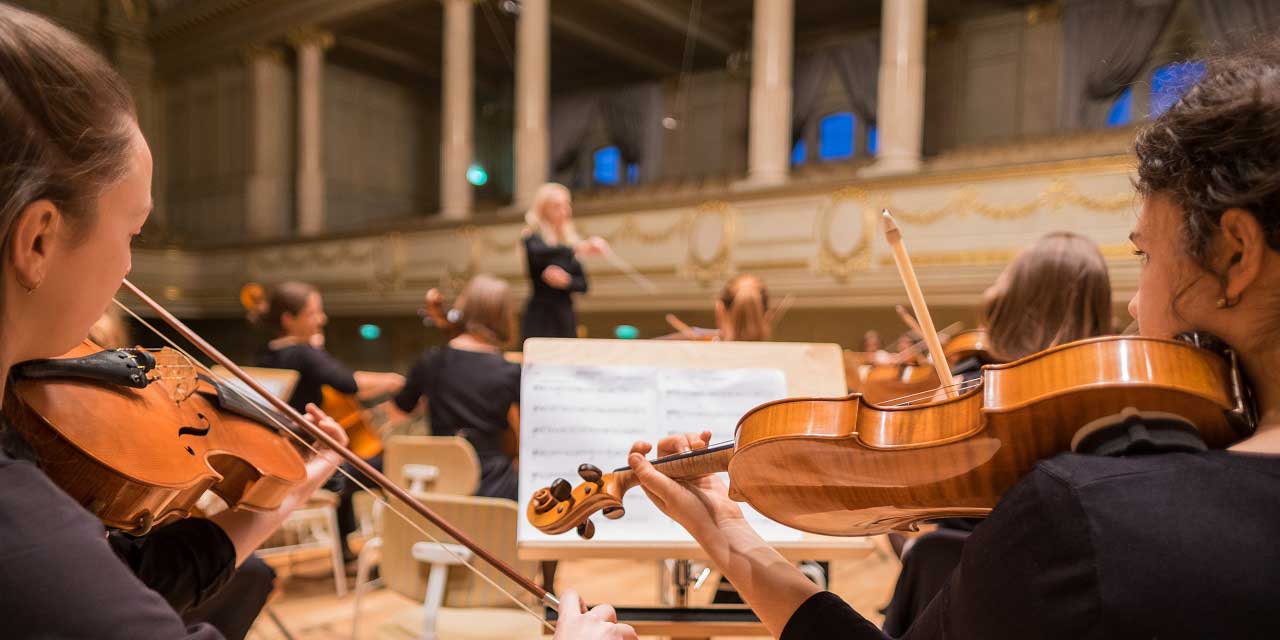
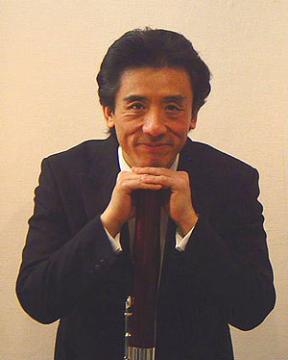

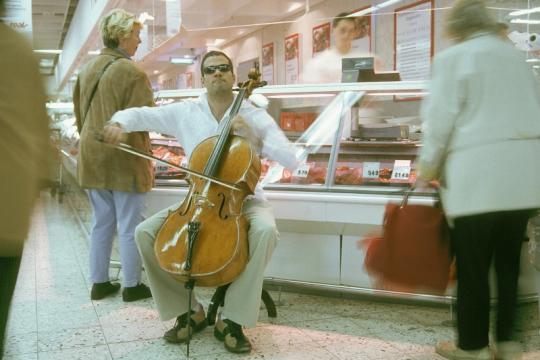
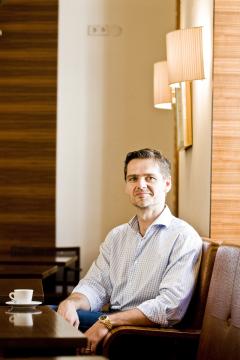
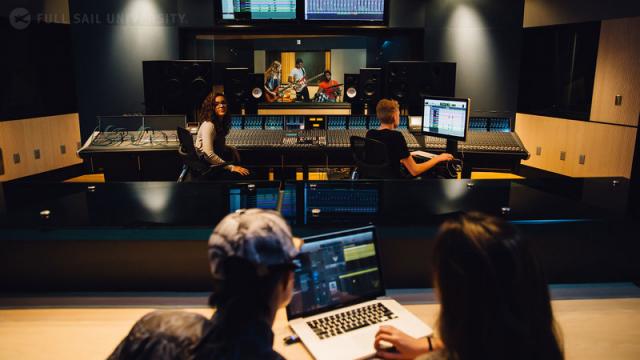
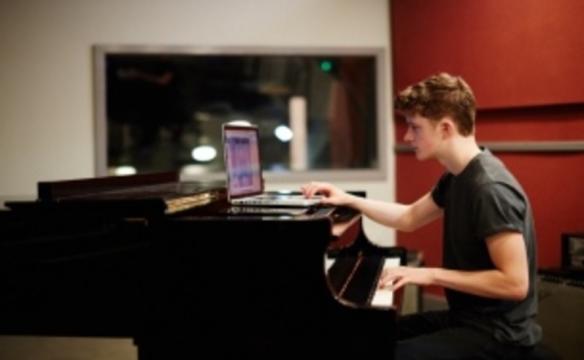


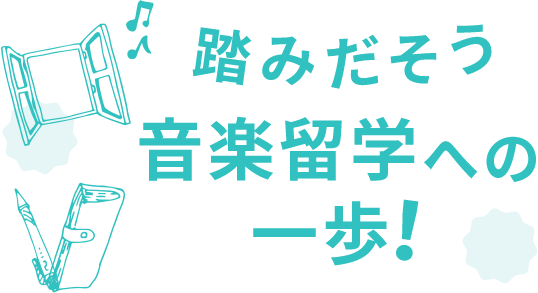
 Book a Counseling
Book a Counseling